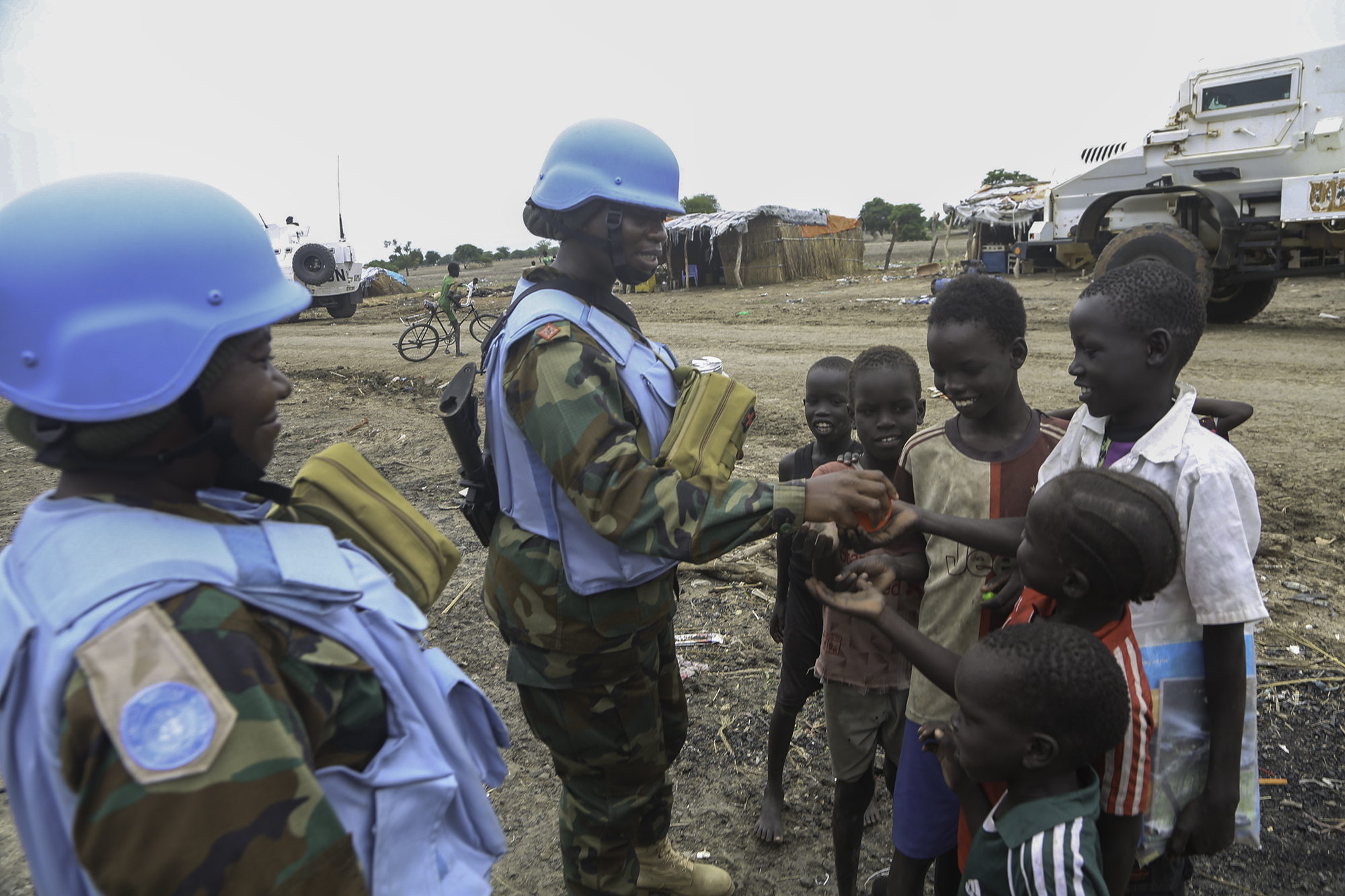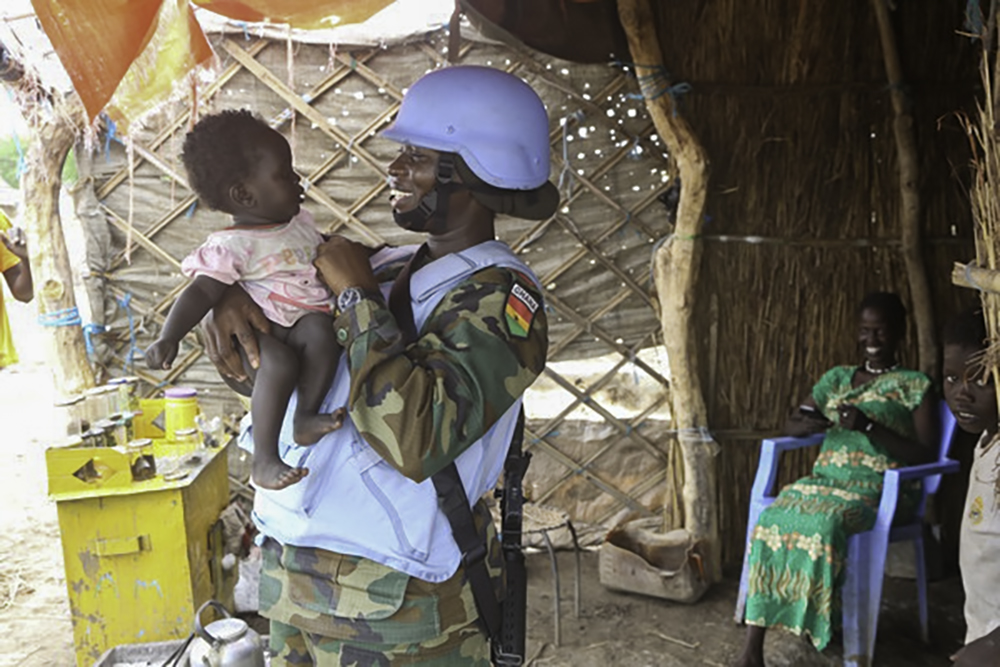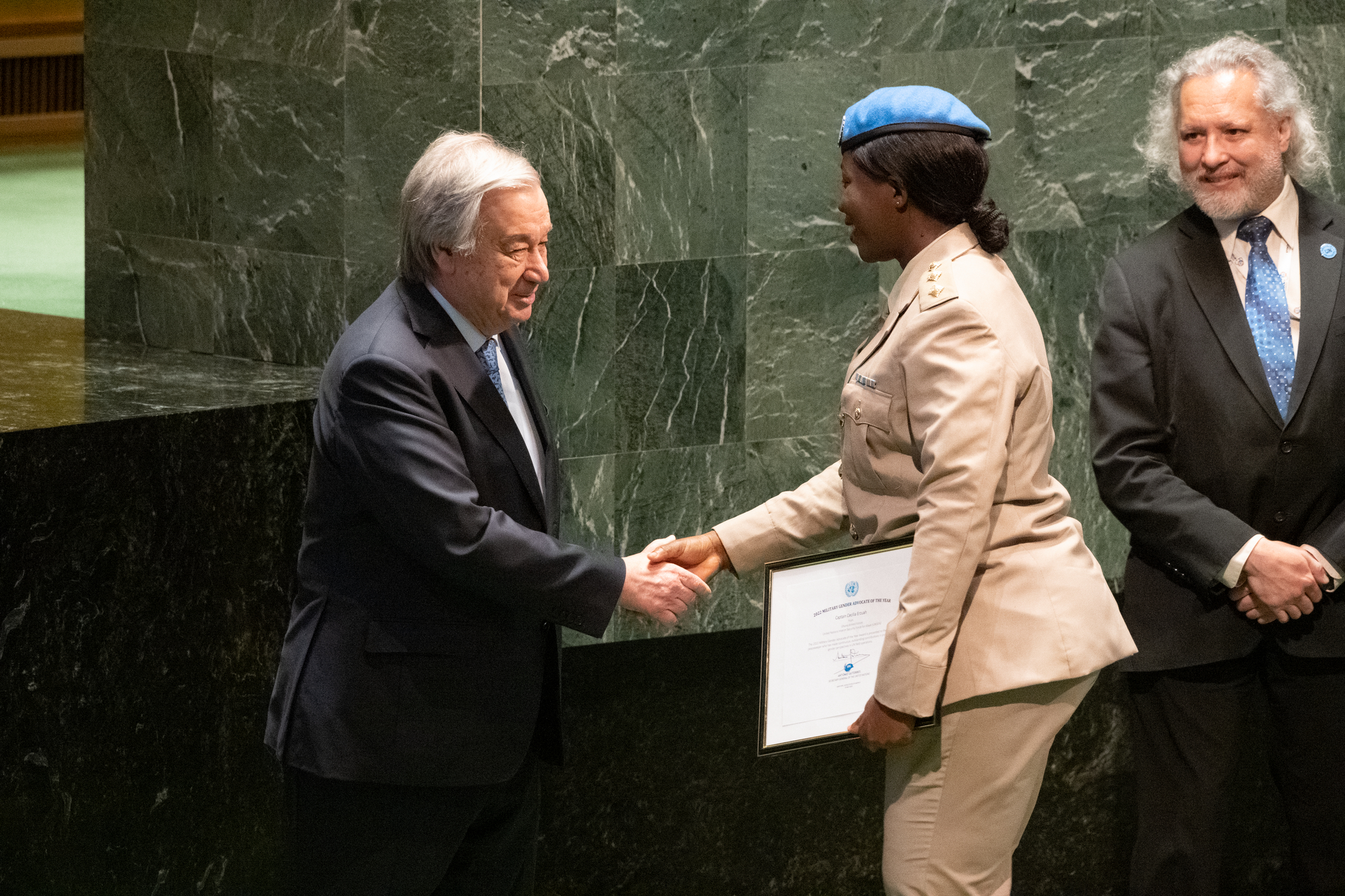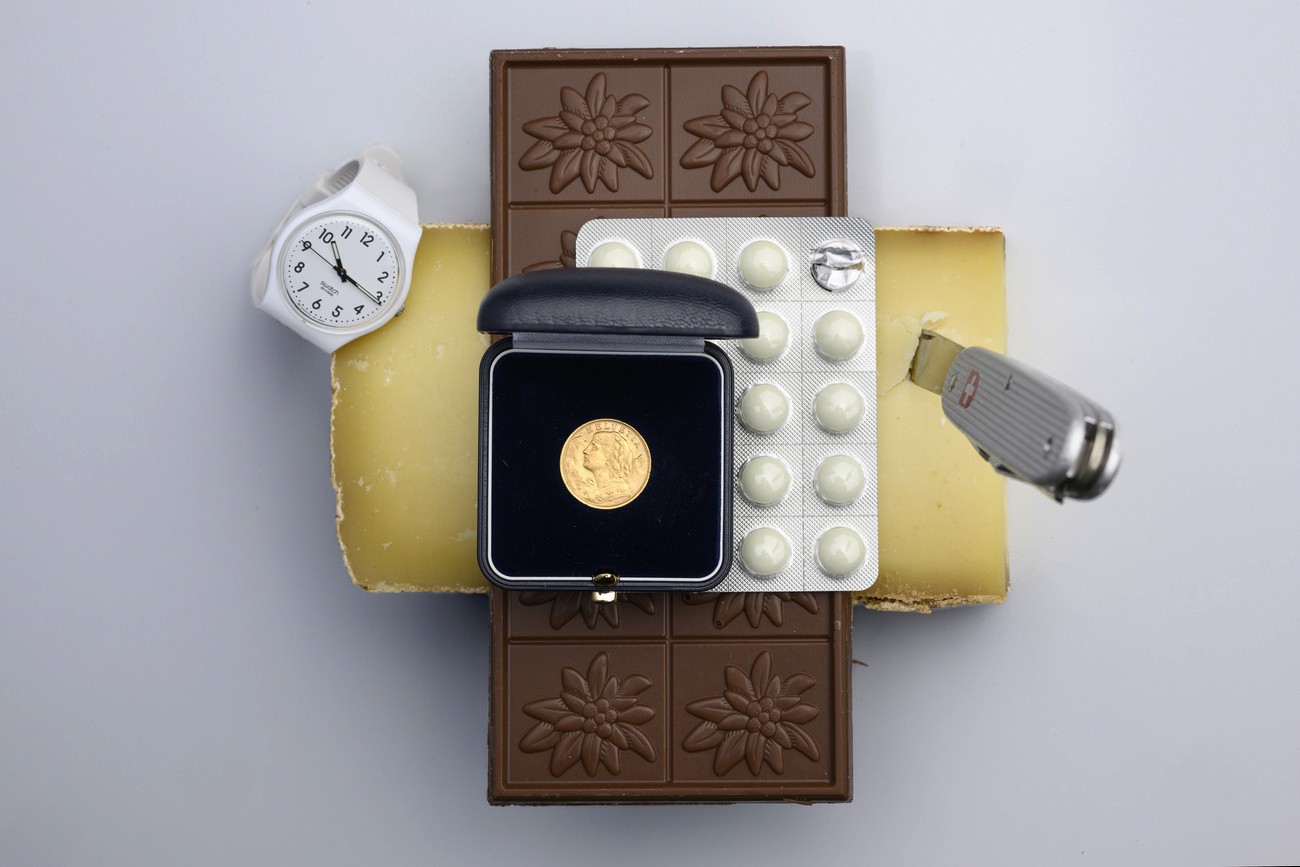
Female Ghanaian peacekeeper inspires women in Sudan

United Nations peacekeeping operations need to gain the trust of communities they seek to protect, says 32-year-old UN soldier Cecilia Erzuah of Ghana, but this is not easy. She tells SWI swissinfo.ch about her award-winning work with the peacekeeping force in the disputed Sudanese region of Abyei.
“It’s not easy to meet people and all of a sudden want them to open up to you,” Erzuah says. “So my greatest responsibility, together with my platoon, was to make sure the local population came to understand that we were neutral, that we were there for them, that we were seeking their protection.”
Erzuah was commander of the Ghana Engagement Platoon in the 3,000-strong UN Interim Security Force for Abyei (UNISFA), where she served from March 2022 until recently. Asked why she joined the military, she says she likes the discipline and the confidence that it gives, particularly to women.
Her role in UNISFA was to make sure that “we are engaging with the women’s groups, the market women, the schoolchildren, the teachers, the leaders, just to understand their concerns, what they think about the work of the UN and my battalion, and what they think we can do to make it better”, she explains. She also reported back to her battalion, creating a bridge of communication between the UN soldiers and the local people.
If the local people better understand the UN force, they feel more ready to share information, and this can help UNISFA in its peacekeeping task, Erzuah says. “With my patrols and the reports I got, we were able to tell that we needed to deploy more people to this area, to this place. And with that, my battalion was able to deploy to repel attacks. When you repel an attack, obviously you save lives.”
Her job was also to promote UNISFA’s civil activities, which she says have included renovation of schools and medical outreach. As well as regular patrols, her platoon also conducted monthly “market walks” to build relations with traders and locals.
Abyei is an oil-rich border region disputed between Sudan and South Sudan ever since South Sudan’s independence in 2011. It has been prey to various outbreaks of violence, which Erzuah says take a particular toll on women and children.
Inspiring trust
UNISFA is one of numerous UN peacekeeping operations around the world. It was set up under a Security Council resolution in June 2011, after Sudan and South Sudan agreed to make Abyei a demilitarised zone. The Security Council expressed particular concern about violence, escalating tension and displacement of civilians.
UNISFA has a mandate to monitor the border between Sudan and South Sudan and facilitate delivery of humanitarian aid. It is authorised to use force to protect civilians and aid workers in Abyei.
Ghana has the largest contingent of military personnel in the force and is responsible for security in the south of the disputed region. The Ghana Engagement Platoon is 22-strong, with an equal number of men and women. Erzuah says this is important in gaining trust particularly from women. “Going out to the communities with both male and female [peacekeepers] helps you to interact with everybody,” she says.
But gaining trust is not easy, and the local women tend to be shy. They are used to seeing male UN peacekeepers. But Erzuah thinks seeing her in command of a mixed-gender platoon helped. “It gave them a lot of encouragement and motivation that women can actually do equally well when given the opportunity,” she says.
Her platoon engaged with women and held discussions on domestic violence, gender equality and childcare. “We found out about welfare, how they took care of their children, about domestic violence, how they are treated,” she says. “Really, women and children are very vulnerable.”

The Ghana battalion also organised breast cancer awareness for the communities in its sector. “And because my platoon had both males and females, it made it very easy to discuss with the women, because they can easily relate.”
Her work also had an impact on community policing, with an increase in women’s empowerment within the local Community Protection Committees. These are like the local police, Erzuah explains. There were women in these committees before, but rarely taking a leading role.
“We saw more of them coming out and doing things, like interacting with us,” she says. “The feeling of being responsible for the security of your community also empowers them.”
Gender Advocate of the Year

On May 25 Erzuah received the UN Military Gender Advocate of the YearExternal link award from Secretary General António Guterres in New York. Guterres praised her work with UN peacekeepers in Abyei, saying “Captain Erzuah’s work has set the standard for ensuring that the needs and concerns of women are reflected across our peacekeeping operations”.
“It was a great feeling. I was excited that my battalion has been recognised, because that award is a very competitive one for all military people,” she says. “It is an achievement for my whole team.”
Erzuah is ambitious and says she wants to continue inspiring women. “Our job is not easy,” she says. “But I think that we help to make the world a better place by providing security to young girls and women out there. I want to encourage them to do their best and take opportunities that are made available to them.”
Born in Kumasi, Ghana, in 1990, Cecilia Erzuah joined the Ghana Armed Forces in 2016. She served with the UN in Lebanon from July 2019 to August 2020. In March 2022 she was deployed to UNIFSA in Abyei.
Now she is back in the Ghanaian capital Accra and says she will continue her career in the Ghana Armed Forces.

In compliance with the JTI standards
More: SWI swissinfo.ch certified by the Journalism Trust Initiative





























You can find an overview of ongoing debates with our journalists here . Please join us!
If you want to start a conversation about a topic raised in this article or want to report factual errors, email us at english@swissinfo.ch.